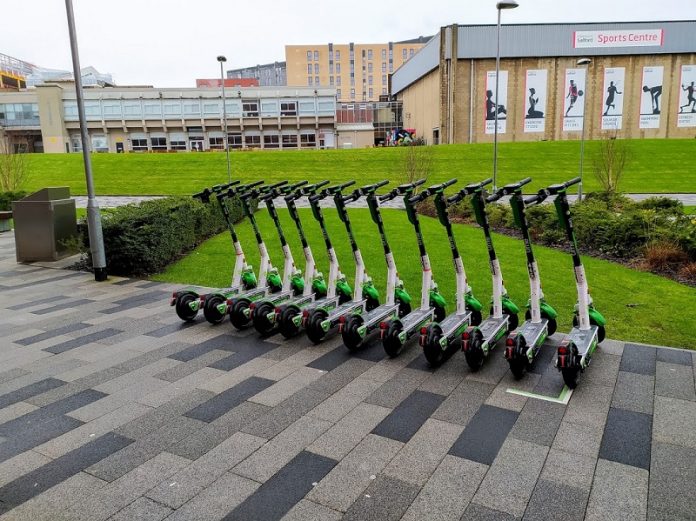The Salford test program for electric scooters has been expanded to include the MediaCityUK area and opened up to employees commuting to the media hub.
All key workers can currently rent e-scooters for free through the Lime Aid program operated by the system’s operator, Lime.
The study started in October 2020, but initially only included the university campus around Peel Park and Frederick Road.
The expanded area now includes a route connecting these locations to MediaCity in Salford Quays.
Hal Stevenson, Lime’s UK Public Affairs Manager, said, “In our view, anyone who has yet to travel should be able to do so in a safe and socially detached way.
“We know our service can do this and we are very happy to do it.”
While the lockdown restrictions impacted the first phase of the program – especially after students were told not to return to campus – the initial uptake was good, with more than 12,000 trips and 23,600 km traveled so far.
In accordance with government restrictions, however, the e-scooters should currently only be used for important journeys such as commuting or shopping.
Any employee who needs to travel to work can apply for free rides through the Lime Aid program that the company runs across multiple locations in the UK.
The trial area includes Salford Crescent station, so scooters can be used for the first or last leg of a shuttle service.
SIMPLE TRANSPORT MODE: map of the areas covered by the e-scooter scheme
Any adult with at least a provisional driver’s license can download the app and rent a scooter.
The third phase of the trial is planned for the end of March. The area is likely to expand east to the River Irwell and west via Pendleton – including Salford Royal Hospital.
This would allow Lime to offer free rides to and from Covid-19 vaccinations.
There is hope that the program could live beyond the pandemic.
This collaboration between Lime, the University of Salford, Transport for Greater Manchester and Salford City Council reflects the University of Salford’s interest in micromobility.
Mike Brown, director of strategic partnerships at the university, said, “With e-bikes and e-scooters, you have a mode of transportation that is flexible, clean, and hopefully less congestion.
“I think micromobility will become a central part of the urban mobility structure.”

